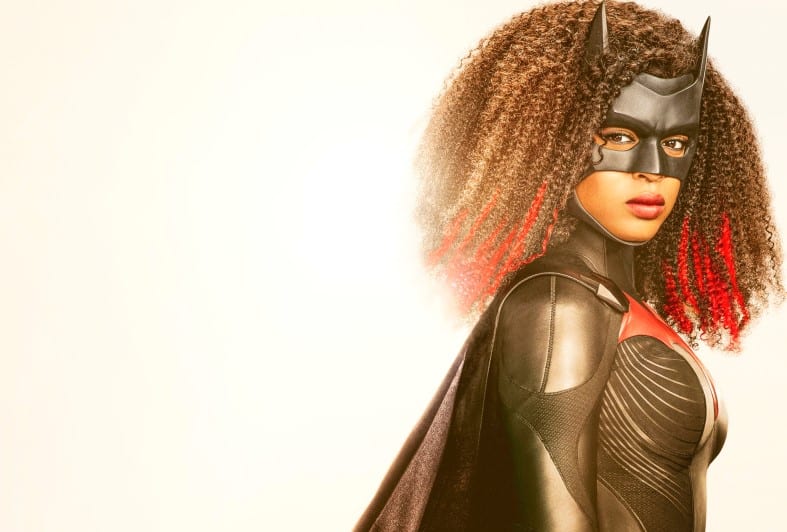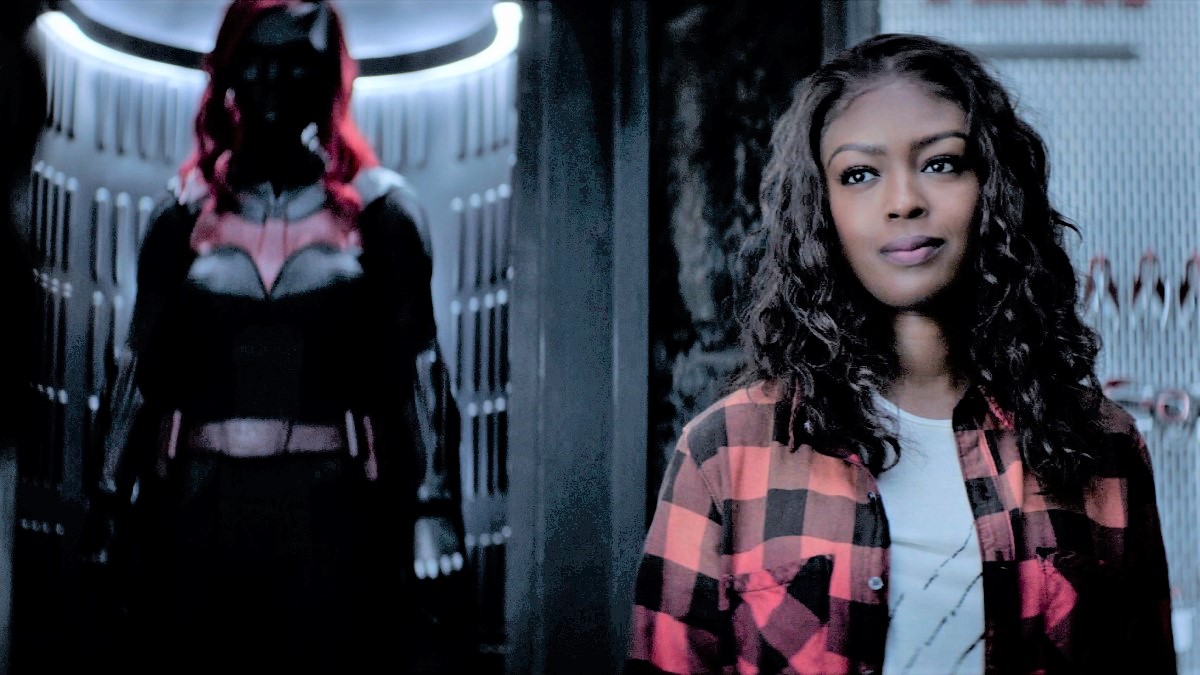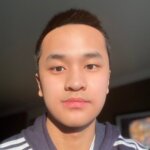When lead actress Ruby Rose made the surprising decision to leave her titular role on Batwoman after its debut season on The CW, showrunner Caroline Dries and her creative team were given a seemingly impossible task: How do you continue a major superhero show without recasting the main lead?
The answer, it seems, was quite simple: You create a new character, one that will help usher in a new era of inclusivity for one of the most prominent LGBTQ2S+ superheroes of all time.
In a first for the DC universe, Javicia Leslie will make history this weekend as the first Black Batwoman—and the first Black and bisexual actress to don the cape and cowl for this iconic role. The former God Friended Me star will play Ryan Wilder, a likeable and messy former drug-runner who has spent years living in a van with her beloved plant and dodging the police of Gotham City. With a criminal record, Ryan’s job prospects are slim to none, and she is forced to mask the pain of her past with bad habits.
In the new season, Ryan discovers and decides to try on Kate Kane’s Batsuit, which ultimately inspires her to take ownership of her life and to seek justice in a system that has continually failed her. While she is very different from her predecessor, Ryan continues Kate’s legacy not only as the new masked vigilante but also as an out lesbian, following through with the show’s commitment to adding even more diversity to DC Comics’ Arrowverse.
In a recent interview from her home in Vancouver, where she has been filming the show since last September, Leslie spoke to Xtra about her long-time fascination with the DC universe, the importance of on-screen representation for people from all walks of life and her coming out conversation with her mom.
You must have felt a lot of pressure when you first stepped into this role. What has the response been like since you were cast last summer?
I’ve had some really amazing feedback from people who I’ve admired my entire life, like Shaquille O’Neal sending me a DM saying, “We’re rooting for you.” It was just so cool for me to get that from him, and he’s like our Superman. (Laughs.) It’s great to hear from all of these people that I’ve known all my life and to really have them on my side and root for me.
Batwoman is obviously such an iconic role for any actress, but how familiar were you with the DC universe and the roster of superhero shows on The CW?
I’m obsessed with the DC universe, especially Gotham. I believe that I’ve pretty much watched every Batman movie, even before I got this role. Since then, I’ve dived back into the world of Batman, Gotham, Joker and all of it, just because it’s so important to understand the language, energy and temperament of this world. But there are a lot of other DC shows that I love. I was an avid Flash watcher, I love Black Lightning—I have a few friends on that show and it’s just really cool to have an all-Black superhero show because that’s not common!
Do you have a favourite DC character or is Batwoman now your number one?
I’m a huge Batman fan, so if it ain’t Batwoman, it’s Batman. I’ve always loved Batman because he didn’t have the usual type of superpower. He was just this regular guy that was very smart and able to create these amazing gadgets that really allowed him to do what it is that he does. But his superpower is his mind.

Considering that you’re such a big fan of the Arrowverse, I have to ask: What was your reaction when you first saw yourself in the Batsuit (which they remodelled for Season 2)?
I felt like a superhero! (Laughs.) It was cool to feel like this was our Batwoman—this was Ryan’s Batwoman. It didn’t feel like she was trying to be something that she wasn’t anymore; it felt like she had found herself. It felt the same for me, like I wasn’t trying to fill someone else’s shoes anymore. It felt like, “Oh okay, it’s this Batwoman’s time.”
The new season could be the catalyst for change when it comes to the representation of the LGBTQ2S+ community, people of colour and other marginalized people in the superhero world. What does it mean to you to bring this representation to such a wide audience?
I think that representation is very important because when you’re able to see something, you’re able to believe it. Now that we’re moving into an age that includes better representation, people are seeing themselves in all these different lights, whether it’d be as an actor or a superhero or a vice president, and to act as a representation for somebody out there is just an honour.
Of course, I’ve received a lot of backlash too because people don’t feel like Batwoman should be Black. But now there are so many little girls that can see that Batwoman can be any colour and they can feel represented by that. There are so many people of colour and so many queer people that are obsessed with the comic-book world that never get to see themselves in it, and now they do. It’s just really exciting to be part of that journey.
“There are so many people of colour and so many queer people that are obsessed with the comic-book world that never get to see themselves in it, and now they do.”
In the official announcement of your casting, you proudly declared your bisexuality and I heard that you actually had an enlightening conversation with your mother about that part of your identity. Can you tell me a little bit about how that went?
I’ve never hidden anything about myself, so if anyone has ever asked or anyone that knows me really well does know. My mom is my mom. She’s never asked and I’ve never had to bring it up because it’s never been part of a conversation to bring it up. But I wanted to talk to her about it because I knew that going into this role, everything about me would become a topic. I wanted her to not feel caught off-guard by anything.
When I brought it up to her, she was like, “I’m your mother. There’s nothing that you are that I didn’t already know. I love you, and I’m here for you, and that’s it.” From that point on, I felt brave about any part of myself that I hadn’t talked about with her specifically before.
How would you say the intersectionality of your identities as a queer Black woman in America has informed your life and work, both on and off the screen?
Being Black is not a title, being queer is not a title—it’s just who I am, right? I am who I am, just walking in my own shoes. I don’t look at things as titles; I look at things as truths and realities. I don’t section people off and say, “This is my white friend or this is my Asian friend or this is my queer friend.” I just think we’re very complex human beings, and the problem that we’ve had is the only way that we can feel comfortable around people is if we create titles and if we try to divide people, so we can be more comfortable with whoever they are.
I feel that, because I surround myself with beautiful, complex and true people, I’m able to really just connect with everyone. It excites me to not only hear people’s stories, but to also play different stories—stories that are outside of my own. That’s the exciting part about being able to do that on screen. I think the most important part of being an actor is being able to just breathe in and drink from the cup of all of the different mixes that we are and then to portray that mix with confidence and without any bias.
It’s obviously been an incredibly tense and difficult past 12 months. What do you think has to be done to effectuate meaningful change not only within the entertainment industry but also America as a whole?
I think one of the things that we have to realize is that we have so much work to do and our country is wrong. It’s wrong if you look at what happened at the Capitol [on Jan. 6], what happened in June [with the Black Lives Matter protests]. It’s a country that has been built off of the backs of slaves and that hasn’t been acknowledged in the way that it should be. It’s a country that has dashed [the hopes of] people of colour and queer people.
I think that we are changing, yes, but I think the biggest change will happen when we can admit where we were wrong. It’s like if someone hurt and wronged you and then, all of a sudden, they started acting right but never admitted to what they did. You can kind of move on, but did you ever really forgive them? Have they ever really addressed that they were wrong? And now, you don’t know if you can trust them because they’re moving on like nothing ever happened. Kids act like everything’s perfect, and I think that’s the space that we’re in. Until some things start to get acknowledged, it’s going to be very difficult for us to have strong and legitimate change.
This interview has been edited and condensed for clarity.
Season 2 of Batwoman will premiere on Jan. 17 at 8 p.m. EST on The CW in the U.S. and Showcase in Canada.


 Why you can trust Xtra
Why you can trust Xtra


